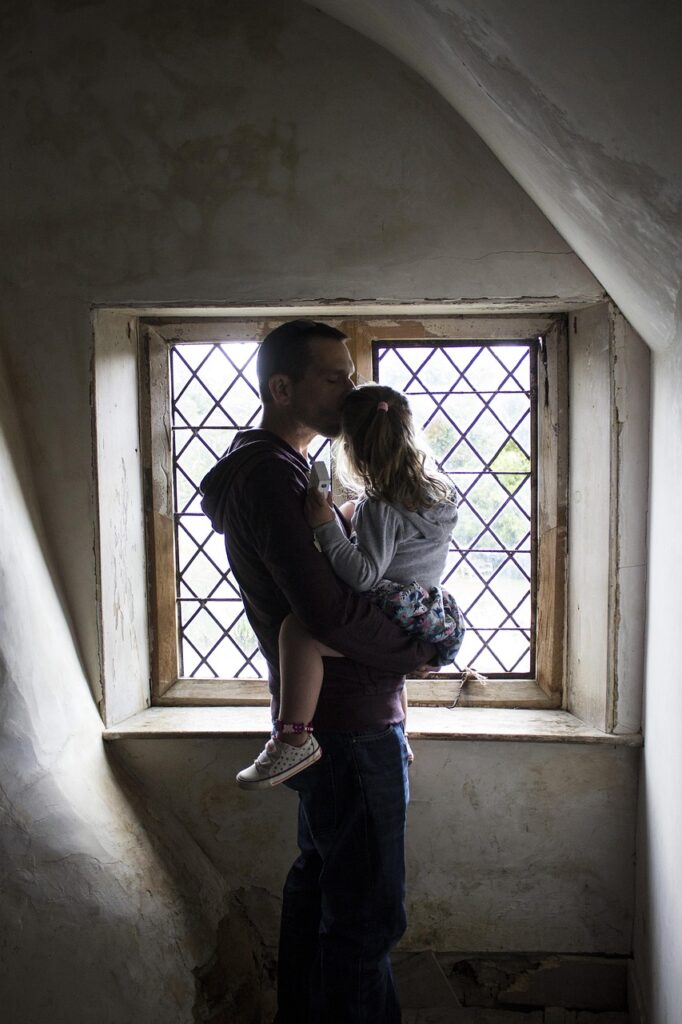I think the hardest thing for us to see in ourselves is our courage. Not only are we hard pressed to recognize any sense of bravery in ourselves, but we also find it difficult to believe any words about our fearlessness from others, whether friend or parent or sibling. I cannot say for certain, but I believe our lack of confidence in this area around courage is tied to the enemy, the one who prowls around seeking to destroy, to tear us down, to keep us stuck and to laden us with his lies. This same enemy seeks to steal our joy, and, honestly, he seems to be pretty freaking good at his job. Which is why I seek to get better and better at my job, which is to encourage and empower my teenagers and help them embrace their power and their pluck (isn’t that a wonderful word—pluck?).

Ever since my girls were young, I have watched the way they take on the world and the ways they so often refuse to back down in the face of uncertainty and fear. Unfortunately, for whatever reasons you choose to ascribe to this forgetfulness (mine being the lies of the enemy who whispers at a screaming volume), we lose sight of our aptitude to confront and even conquer the things that scare us. Maybe it’s easier when we are younger. We not only embrace but actually embody fearlessness; it’s much more difficult to tap into that as we grow up, especially during the teenage years when it feels like we are wandering aimlessly trying to figure out who we are, what we believe, and what matters to us.
When I look at my teenagers, I see two remarkable young women who are incredibly capable and courageous. I don’t think they see that as clearly as I do. In fact, I’m fairly certain they would argue somewhat vehemently with me that they are not brave. How I wish they could see themselves the way I do. And, until they do, I will seek to be the voice whispering louder than the one of the enemy. Where he wants them to falter and freeze, I long to build them up and reflect the truth of the masterpiece they are, that they are created to be by the One who already defeated the enemy.
I remember when our girls were younger, only 4 and 2, and our family packed up our home in Massachusetts, loaded up a U-Haul moving truck, and relocated to North Carolina. The two of them embraced those big changes as an adventure. When each of them got a spot at a local public charter school, they faced fear down mightily, transitioning from the comforts of homeschooling for the challenges of what we hoped would be an awesome charter school experience. They have navigated a pandemic that effectively shut down the world and maintained a resilience that still awes me. And only six months ago, they dealt with the devastation and natural disaster fallout brought on by Hurricane Helene.
But it hasn’t always been the big changes and big challenges they have faced with vim and vigor. As teenagers who are neurodivergent, daily they challenge the status quo and they do so with a grace and fortitude many would envy. Truly, this world is not geared toward the acceptance or inclusivity so many folks like to talk about; this world can feel like an alien planet when it comes to sensory challenges, overstimulation, and the expectations and experiences of neurotypicals. And yet I watch these two young women move through the world around them with a lot more acceptance and empathy than their peers.

When one of our girls was almost 5 years old, her ability to sleep through the night often was interrupted for reasons at that time we could neither discern nor fully understand. Even so, in those night-waking moments, we were there to help her however we could. But it was her dad who was able to guide her frenetic mind into a place of calm, a place where the world once again made sense to her. If you’ve ever been awakened in the middle of the night by an unanticipated event—a severe storm, a fire alarm, or some other loud and unexpected thing—you likely have experienced that complete disorientation that floods your brain and your senses.
In other words, you know it can be difficult to bring the outside world into focus for several moments. That is what these night wakings were like (and for a long time we wondered if she were experiencing night terrors, but that is not what it was; it was her autistic brain). As she fought to right her world and her thoughts, her dad would walk her around our home, pointing out all of the familiar and favorite things of her everyday life. Slowly, steadily, she would calm down, the crying and screaming would ebb, and her breathing would regulate. As he pointed out each photo, each painting, each item in the living room, I could see her melting into her daddy’s arms. When I think about those nights and those moments, the way she welcomed the safety of her father’s arms, I am reminded of the ways I rely on my Father to support and empower each of us. In fact, these days, when I witness the challenges my teens are facing in a given moment, I am quick to whisper a prayer that my girls sense and welcome the safety of the Father’s arms alongside the no-matter-what love with which I love them.
